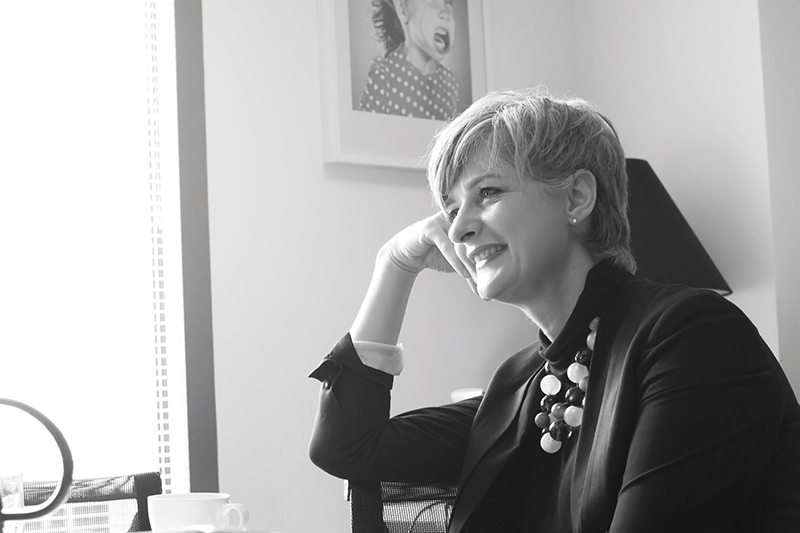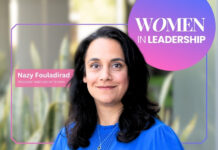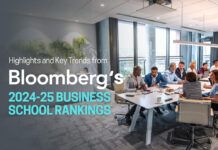Exclusive Interview with Cheryl Giovannoni by our editor Camille Merrells
Cheryl Giovannoni is the dynamic CEO of Ogilvy & Mather UK, the advertising giant responsible for those advertising campaigns that make you smile and make you laugh – like Expedia’s travel yourself interesting campaign, or Dove’s Real Beauty campaign. We met with Cheryl in Ogilvy’s Canary Wharf building, where the company will be based until their move to Sea Containers House in Blackfriars, summer 2015.
CM: So Cheryl, you have been Chief Executive of Ogilvy & Mather UK for over a year now, what have you accomplished here that you are most proud of?
CG: There are two things and the first is that in our 20-year history Ogilvy & Mather London has never been more successful creatively. We have had our best year with respect to winning creative awards but also our best year in terms of effectiveness. This really matters because ultimately that means we are helping our clients to build their businesses and brands, so I’m really proud of that. And for these to be our best results in 20 years feels great.
The other thing I am particularly proud of is a very recent and timely development here. Some of the women in the organisation have got together and created a Women at Ogilvy forum. It’s an initiative that has come from the ground up, so it’s totally non-hierarchical. We’ve created a place where women can come together and identify issues and solutions that they believe will help them be more successful in their jobs so I feel really proud of that.
You are also a member of WACL (Women in Advertising and Communications London), do you think it’s important that women in the advertising industry have their own spaces to talk to and learn from each other?
Well I have always been extremely against organisations that are only for men, so it feels slightly disingenuous therefore to believe there is a need for organisations just for women. The good thing about WACL is that although it’s a club for women, created by women, men are welcome at all events. So it’s not totally exclusive. I wish we didn’t need female-only organisations but because we have not got to a point where there is gender parity, having a support network is really important and doing it formally does make a difference.
I think men have a lot of informal networks, operating the way men have always done. Somehow women need to create those behaviours. So there is a role I believe for an organisation like WACL, but I would like to think it won’t always be necessary.
For Women at Ogilvy we’ve only had two meetings so far and we didn’t have enough room in the conference room. We had women bursting out the doors there were so many people, which just demonstrates to me how hungry women are for help, advice and support. I always remind people of what Madeleine Albright said, “there is a special place in hell for women who don’t help other women,” and its true we need to help each other do whatever we can because otherwise all of that effort will be for no real progress. Take Sheryl Sandberg, who is very purposeful in helping women in a tangible way. You need people like that who put the case for change very clearly and almost scientifically. She’s done a lot of work to make that happen and I really admire her.
So considering the fact that you are uncomfortable designating spaces for one gender only, would you describe yourself as a feminist? Some people take issue with that term along the same lines.
I think I would call myself a feminist, but not for the obvious reasons. I think everything we are talking about right now probably touches such a small percentage of women in the world, who actually are incredibly privileged and who aren’t particularly abused or discriminated against and have masses of opportunity. I would call myself a feminist because there is a huge tranche of women who live in societies where they are abused, treated like second-class citizens, have no rights and no access to education. That’s why you still have to call yourself a feminist because there is this huge number of women for whom we have a responsibility to help just as much as we have to help the women in our own organisation.
Now that there are more women like yourself in leadership positions who are very vocal about being a woman at that level, there are more successful role models for young women. Have you observed a change in the ambition of the women around you?
Well a lot of people talk about this being the century of women, and there’s real momentum building around what we can do to help women at all levels. An organisation has just been launched called 25 for 25. Right now there are only five female CEOs of FTSE 100 companies, and the goal of this movement is to have 25 by the year 25.
I think part of the challenge is trying to get younger women to aspire to those top jobs. I think women have a much more complex mindset around getting to the top. We have to be encouraged and mentored a lot more. Not at the exclusion of men, but just helping women make progress and achieving gender parity and equality.
You mention gender parity; when we talk about equal employment opportunities and equal pay for women, people tend to sneer that women want to ‘have it all’. Do you feel that you ‘have it all’?
I think if you felt like you had it all you’d stop trying, wouldn’t you? There is always more to do. And nobody would ask my husband that – it’s very indicative of what we ask women, as opposed to what we ask men.
But to answer directly, I don’t think we can ever have it all – if by that you mean I want to always be there when my children have important milestones in their lives, and when my husband needs me, or when my mother is ill. I think you have to make some hard choices if you want to be at the top of any profession. That comes with sacrifices. I think women just carry more guilt. Men generally don’t worry nearly as much if they aren’t at the sports day or at the ballet exam. I think women believe they should make those things a priority, possibly more than men do.
You mentioned the low number of FTSE 100 female CEOs, and similarly the percentage of Fortune 500 Executive Officer positions held by women in 2013 was 14.6% (2013 Catalyst Census). Do you feel women generally have to fight harder to become successful?
I do to a certain extent but I also think it’s a very narrow way of looking at
true success that we are so obsessed with how many women run FTSE
100 companies.
Women I really admire are often those women who choose to do things differently and see the way to success in a very different way. You don’t have to believe that being the leader of a FTSE 100 company or a Fortune 500 company is the only way you can be successful. Having said that, I do think if women were more represented at the top of those companies I think they’d benefit from being more balanced. There is a lot of research to prove that companies that have more of a mix of genders are commercially more successful.
And yet here we are. One would hope that archaic stereotypes about women in the workplace have died out, but do you feel that women still suffer from being seen as ‘too emotional’ for a job, or because they might be mothers?
Yes I think those are all realities we still grapple with. I also think women aren’t always very upfront about what they want. They are frightened to suggest a contract with their employer that would allow them to have some balance or do things differently, and I do think if women were more honest about what they were looking for and were more confident that they could make those requests, we would have a much more balanced view of the world of work.
The world of work is changing a lot, and becoming very different. One of the things I’m really excited about as we move to Sea Containers is that we can physically define a new way of working, we will be agile and people will be given a lot more flexibility and freedom around the way they work. I think once you start making that shift physically it can impact upon the way people do their work too.
So for me it isn’t about playing to the female needs in an environment, I think it’s about playing to feminine values of more collaboration, of sharing, of coming together in a very different way – that is what we hope to achieve in our new work environment.
You mentioned that companies perform better when there is more representation of both genders, which is particularly true when that organisation is focused so much on consumer trends, as research shows that women account for approximately 85% of consumer purchases. Is that something you have noticed here at Ogilvy?
Yes and we have a lot of women in senior roles in the organisation: our Group CEO is female and I think four out of ten of our CEOs of different operating companies are female. So we have a good representation. It just makes for a much more vibrant, interesting, and quite energising environment. Because men and women do often come at things differently, and having that mix is very healthy for an organisation.
We work really hard at achieving a balance, and we try to be truly diverse in as many ways as we possibly can. We never apply any positive discrimination but we’re very conscious that what we’re looking for is a balance, and we’re trying to work on all areas.
Another thing is that advertising is a very young industry, so it’s a perfect place for women who are starting their careers and growing. We can try and help them to find positive ways of making change happen in the organisation itself.
Do you find that you are changing your advertising strategy more to be effective across social media platforms in this “Golden Age” of advertising?
If you look at social networks generally there is only one social network that has more male users than female users, and that’s LinkedIn. All the others are more female than male. So there is a real groundswell of women in an environment where collaboration, sharing and conversation are key elements, playing to all the real strengths women have. So they are key brands growing and developing.
We have a refreshed vision at Ogilvy, we talk about “Big Ideals” being brought to life and we try to find the real human purpose of a brand. So Dove and its Real Women campaign is a good example of a brand that has a purpose beyond its functional benefits. Another thing we value at Ogilvy is “work loved by millions”: we need our work to be loved by millions and shared by millions. You have to be very elegant about how you draw consumers to your brand and how you get them involved in the conversation.
What I don’t think is a good idea is for brands to be very specifically targeted at women. The Range Rover Evoque was partly designed by Victoria Beckham and for me it undermines the integrity of a brand when its obviously designing for women, as opposed to women being an important part of targeting but not the main focus. Although I like the Evoque as a car I would prefer a product, like the Audi Tt for example, that you come to because it has things that you love and admire about it, not just because you are a woman. It’s like saying, you’re a woman, you’re going to have that car and you’re probably going have it in pink.
Do you think there is still a problem with the way women are portrayed generally in the media?
Yes. I think Dove’s Real Beauty campaign is a good example of how you should portray women. I do have a massive problem with the sexualisation of women and treating women as objects, but then I have to say I think often women perpetrate those images – just look at pop stars like Miley Cyrus or Jesse J. Everything is on show. And yes it can be empowering but I think sometimes we are responsible for the fact that we sexualise the role of women in the media ourselves. It’s a difficult debate.
I do think there is far less advertising around women in very traditional roles and doing traditional things at the exclusion of everyone else. I also can’t stand advertising that puts men in roles that women are “meant” to be doing and then making a joke of it. It’s so hackneyed.
We’ve talked about positions opening up more for women in professional industries, but what do you see as the biggest challenge still facing women today?
I think self-confidence is a big challenge, women believing they can actually achieve what they want. The other challenge is being very clear about your choices, and making choices based around what you really want and not what you think society wants of you.
Another challenge is not focusing too much on what you think might happen to you as a woman in ten or twenty years time. I have two daughters, one of whom has just gone to university, and she has friends who think they will be housewives one day, so they are making choices based around that already, which is terrifying!
Make the best of your opportunities now; just dream bigger and be braver and think you can own the world, because who knows what the future holds. Having a high level of ambition is something women should be much more bullish about.
So is if there were one thing women reading this were to take away from this interview, what would you want it to be?
Well I don’t think women ask for help enough, or rely on others and use their networks to help them get where they want to get. So I suppose it would be use the opportunities you’ve been given because there is this groundswell of support all around you for you to be the best you possibly can. So tap into that and you will achieve great things.
People want women to be successful, we want a more equal society where women are pulling their weight and feeling totally empowered. I think if the sense was much more how do we help each other be more successful, rather than divide issues up into male and female, then we wouldn’t be seen as man-haters and bra-burning feminists. Surely we’ve moved beyond that and the conversation has moved beyond that. That’s what I would like to think anyway.
Cheryl Giovannoni has been Chief Executive of Ogilvy & Mather Advertising since October 4, 2013. She formerly served as President of the EMEA region at Landor Associates LLC, where she was also Global Leader on Proctor & Gamble. Giovannoni started her career in 1993 in strategic planning at O&M South Africa and since then she has worked on a broad range of clients, including Unilever, GlaxoSmithKline, BP, Diageo, Marks & Spencer, Nestle and P&G.


































